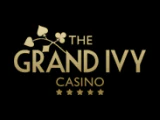For most people, the activity of gambling is an occasional recreational pursuit and does not cause a problem. It is for some, however, a debilitating compulsion affecting every area of their lives.
What is compulsive gambling?
Pathological gambling, commonly referred to as compulsive gambling, is a progressive behaviour disorder in which a person has a psychologically uncontrollable preoccupation and urge to gamble. This results in excessive gambling, the outcome of which is the loss of time and money. The gambling reaches the point where it compromises, disrupts and destroys the gambler’s personal life, family relationships or vocational pursuits. These problems lead to the intensification of the gambling behaviour.
Very often compulsive gambling is referred to as the “hidden illness” because there are no physical or visual symptoms. There is no “telltale” smell on the breath, no stumbling when walking or slurring of speech. Yet, the effects of compulsive gambling can be as devastating as alcohol and drug addiction and can result in both financial and personal destruction.
Since 1980, the American Psychological Association has classified pathological, or compulsive gambling, as a mental health disorder of impulse control. The illness is both diagnosable and treatable. For an individual to be diagnosed as a pathological gambler, s/he must have five or more of 10 criteria. In prevalence studies, individuals with three or four of the following criteria are considered “problem” gamblers and those with one or two are classified as “at-risk.”
| Preoccupation | Is preoccupied with gambling (e.g., preoccupied with reliving past gambling experiences, handicapping or planning the next venture, or thinking of ways to get money to gamble) |
| Tolerance | Needs to gamble with increasing amounts of money in order to achieve the desired excitement |
| Withdrawal | Is restless or irritable when attempting to cut down or stop gambling |
| Escape | Gambles as a way of escaping from problems or relieving dysphoric mood (e.g., feelings of helplessness, guilt, anxiety or depression) |
| Chasing | After losing money gambling, often returns another day in order to get even (“chasing one’s losses”) |
| Lying | Lies to family members, therapists or others to conceal the extent of involvement with gambling |
| Illegal acts | Has committed illegal acts (e.g., forgery, fraud, theft or embezzlement) in order to finance gambling |
| Risked significant relationship | Has jeopardized or lost a significant relationship, job or educational or career opportunity because of gambling |
| Bailout | Has relied on others to provide money to relieve a desperate financial situation caused by gambling |
| Loss of control | Has made repeated unsuccessful efforts to control, cut back or stop gambling |
Compulsive gambling starts quietly. Winning enhances the gambler’s self-image and ego. Losses are rationalized as poor advice or bad luck. However, as losses increase and self-esteem is jeopardized, the gambler borrows money to “invest” in gambling in hopes of breaking even. The need arises to hide new losses and borrow more money to make up the difference. At this point, lies, loan fraud, absenteeism, family disputes and job changes are common danger signals.
Finally, desperation occurs as the gambler becomes obsessed with getting even to cover stolen money, withdrawals from family bank accounts and secret loans. The gambler panics at the thought that the gambling action will cease if the credit or bailouts stop. This results in the eventual destruction of the gambler’s personal life, family relationships and career. The gambler can experience severe mood swings and suicide may be considered and attempted as a way out.
The costs to the gamblers are only the beginning. Excessive gambling also presents negative consequences to those closest to the gambler (e.g. family and friends), as well as to employers (e.g. poor work performance, theft and embezzlement) and places a hardship on our legal and prison systems, and public assistance programs. Overall, the cost to society, as a result of compulsive gambling, is considerable.
Effects of compulsive gambling
Social effects
Within the United States, the ongoing rise in legalized gambling opportunities is largely due to increasing public acceptance of gambling as a form of recreation, coupled with assurances of substantial economic benefits and tax revenues for communities where the gambling is located. The primary question lying at the basis of all gambling proposals is whether the benefits outweigh the costs. This is particularly difficult to quantify when social costs are far more complicated to measure than economic impacts. Despite increased research in the field, there is little definitively known.
In addition to the cost of problem gambling to individuals, including but not limited to financial and legal difficulties and relationship and employment problems, many suffer from physical and emotional issues. Research has also shown that many compulsive gamblers suffer from alcohol, drug and mental health-related problems and have a higher rate of suicidal ideation and attempts than persons suffering from other addictive and mental health disorders. Compulsive gamblers are also more likely to exhaust personal finances resulting in engagement in illegal activity. Studies have concluded that two out of three pathological gamblers commit illegal acts in order to pay gambling-related debts and/or to continue gambling. Further, according to published reports, the percentage of prison inmates who have gambling problems appears to be much greater than the general population.
The families of problem gamblers also suffer greatly and experience physical and psychological abuse, as well as harassment and threats from bill collectors and creditors. Increased stresses stemming from neglect, abuse and divorce also impact heavily on this population. Further, as compulsive gambling leads to numerous credit card and legal problems, including bankruptcy, embezzlement and fraud, families are often the first to feel the adverse effects. Compounding this problem is the ease in which an individual (or gambler) can obtain or access credit and file bankruptcy. However, little is known as to how many problem gamblers are unemployed and/or ultimately present in homeless shelters, food pantries or to health and human service agencies seeking government supports.
According to prevalence studies, problem and pathological gamblers across age groups use tobacco, alcohol, marijuana, cocaine and drugs more often than other groups. Pathological gamblers also report drinking more than persons falling within other categories. Similarly, problem and pathological gamblers report engaging in illicit behaviour and experience depression, arrest, treatment for a drug or alcohol problem, and difficulties with family members or friends at higher rates than other groups. It is also true that at-risk/problem adolescent gamblers are more likely to have sold personal or family property, stolen other things, bought or sold stolen property or borrowed money from friends/acquaintances without their knowledge in order to obtain money to gamble or to pay off gambling debts.
Finally, based upon nearly 7,000 contacts*, a considerable number of self-identified problem gamblers were experiencing personal, familial and/or financial problems due to gambling. Charges to credit cards were also substantial. Moreover, of the 495 persons who responded to information relating to bankruptcy, 13% advised the gambler had gone bankrupt.
Although research in this area is still needed, there is clear evidence that the social effects of pathological gambling, though challenging to quantify, are real, particularly to persons experiencing the consequences.
Economic effects
Unlike the costs of problem gambling, which are generally measured insofar as the impacts on individuals, the benefits and costs associated with economic factors of gambling opportunities are often reported in terms of the effects on communities. In addition to increased entertainment and employment opportunities, the presence of gambling within communities is promoted with assurances of increased property values, tax revenues, tourism and recreation. The presence of gambling venues has also brought increased construction and growth in the hotel industry, as well as economic benefits to disadvantaged communities.
Overall, little is definitively known as to the economic effects of problem gambling or the financial impacts and costs associated with debt, insurance, medical payments, or costs factors to employers or the criminal justice system.
The National Opinion Research Council (NORC), under contract with the National Gambling Impact Study Commission, conducted a study in 1998, which revealed that overall, problem and pathological gamblers in the United States cost society approximately $5 billion per year and an additional $40 billion in lifetime costs for productivity reductions, social services and creditor losses. (NOTE: The NORC report focused on a small number of tangible consequences and, as a result, its calculations are conservative and reflect minimums.)
A Florida study of the effects of casino gambling, conducted by the Florida Office of Planning and Budgeting (1994), concluded that the net cost of casinos in Florida range from $2.16 to $3.25 billion.
There are also studies documenting the positive economic impacts that gambling has had on communities and Native American territories. Further, it is anticipated that proponents and opponents of the gambling controversy will continue to keep this issue in the public eye. As such, it is important to weigh both sides of the equation for a balanced perspective.
*data compiled from the Florida Council on Compulsive Gambling 24-hour HelpLine, for the period of July 1, 2002-June 30, 2003





